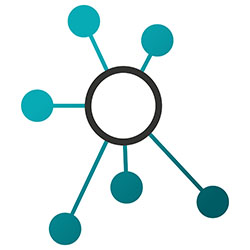The Fear of Relapse and How the CONNECT Study Could Help
The aim of the CONNECT study is to produce a digital remote monitoring system (DRM) whereby healthcare professionals and service users receive an early warning alert about a potential relapse of psychosis and intervene in a timely manner. The DRM system includes a smartphone app, a wearable and a digital data capture platform which collects information about a range of clinical and health factors.
“The thought that I might have a relapse in the future fills me with fear” says Alison, an expert by experience for CONNECT. “But even with this constant fear, a relapse takes me by surprise. How could this happen again? What did I do wrong?”
Relapse also has a huge impact for Alison. “A relapse of psychosis is a major disruption to my life” she says. “And it not only affects me but all the people I care about. It is disturbing and so confusing. My mind is over processing thoughts in a manic state. I experience ideas, feelings, and experiences but not in a rational way. I cannot process or learn from any of it. There’s also a breakdown in relationships, financial loss and the inability to work. I have become my own worst enemy. One day I wanted to die taking all the steps and methods necessary. I was fighting for my life, physically and mentally.”
Alison believes the CONNECT app could play an important role in preventing relapse. She also thinks it could be empowering. “An app can help with future planning. If the app makes me feel confident and secure, I am free to learn about my condition.”
A member of the Lived Experience Advisory Panel, Katherine, experiences what has been termed the fear of relapse. “I regularly think about how much I do not want to be hospitalised again”, she says. “I fear medical professionals knocking on my door announcing that I am having a relapse and taking me to hospital based on their own poor observation skills and very little other evidence. This is something that has happened to me before.”
Katherine takes her medication as prescribed, and she worries that she might experience a relapse and be sectioned if she changes her medication. “Without my medication I could become very unwell in a matter of days and my fear is that things could become out of control and my life could be disrupted yet again. If my medication is changed while I am having a relapse in hospital I am locked up with no freedom or autonomy. I am stripped of my human rights and there is no optimal solution for my treatment or care. At this stage it feels like nothing could make me better. Recovery from relapse is slow and takes far too long. An app that helps prevent relapse getting to this stage could make a big difference.”
Expert by experience, Sally, says that she finds worrying about relapse counterproductive and benefits from psychological treatments. “Worrying about something such as relapse is inevitably counterproductive. Time and practice help. And the times I have relapsed, CBT [Cognitive Behaviour Therapy] for psychosis has proved a very handy tool.” Sally hopes the CONNECT app will help to reduce fear of relapse. She also believes it will be valuable in capturing personal indicators of relapse and will support her to be better prepared for and potentially prevent relapse in the future.





0 Comments